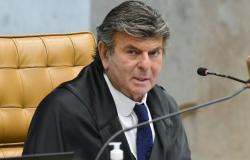Minutes of the Monetary Policy Committee, Copom, of the Central Bank (BC), released this Tuesday (26), blame, in a surreal way, the creation of jobs and the increase in salaries under the Lula government for the increase in inflation estimates and cites “concern” about economic growth in the country.
“The Committee discussed the labor market in depth and assesses that salary increases in the current period may be linked, to some extent, to pressures in the labor market”, says the minutes, in its item 11, to justify a reduction in the pace of Selic interest rate cuts.
On Friday (22), Copom reduced the basic interest rate by 0.5 points, reaching 10.75% per year. But, he threatened, warning that “if prospective uncertainty remains high in the future, a slower pace of monetary easing may prove appropriate, for any terminal rate that is desired to be achieved.”
The uncertainty, according to Copom, is precisely about the growth of employment and worker income, which would impact the rise in prices. Faced with high inflation, the remedy for neoliberals is to raise the interest rate – or stop the decline in the index.
“In its analysis, the Committee demonstrated greater concern about possible effects of the increase in real earnings in the most recent period and the acceleration of growth observed in data referring to the wage bill on the prospective dynamics of inflation in services”, say the minutes.
Neoliberal madness
In an interview with Fórum Café this Wednesday (27), economist Paulo Kliass stated that this is not the first time that this “analysis” has occurred and that the thesis of stopping the advance of the labor market with rising interest rates is one of the “craziness” of neoliberals.
“This is a recurring and permanent element in the assessments of people in the financial system, orthodoxy, neoliberals. This is not new,” he says.
The economist remembers the work of Joaquim Levy, who was appointed by the president of Bradesco, Luiz Carlos Trabuco, to take over the Ministry of Finance in the second government of Dilma Rousseff (PT), in 2014.
“He put into practice exactly what is described in the Copom minutes. In these people’s view, there is the concept of Potential GDP, which is how much the economy can grow in a given period. And what if it grows more than this potential GDP, which no one knows how it is calculated, you have risks. And what could happen? You could have an increase in salaries – as happened in Lula’s two terms and Dilma’s first. This puts more resources into the economy and people will consume more. And accordingly with this conservative thesis, this increases aggregate demand, which puts pressure on prices. As there is no supply, inflation occurs. It’s a schematic thing, reality is tired of proving the opposite, but the guys boast”, he states.
“Joaquim Levy said: we have to reduce the real value of workers’ average income, we have to prevent GDP growth from increasing. Summary: 2015 was one of the biggest recessions in Brazil’s recent history. Because it was an intention: I have to provoke recession, unemployment, salary cuts to prevent inflation from returning. That’s crazy”, added Kliass.
Watch the interview at Forum Café.
Tags: Central Bank blames employment higher wages potential inflation concern
--





